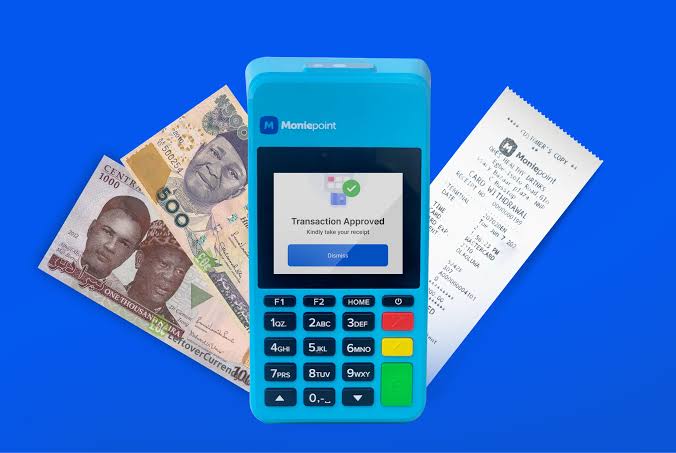In a significant development for Nigeria’s fintech sector, Google has joined a group of investors to inject $110 million into Moniepoint, one of Africa’s fastest-growing digital financial service providers. This investment not only underscores global confidence in the African fintech market but also highlights the increasing role of Nigerian startups in shaping the future of digital finance across the continent. For Google and other investors, the move aligns with the broader trend of expanding access to digital financial solutions for underserved markets and enabling small and medium-sized enterprises (SMEs) to flourish.
About Moniepoint and its Mission
Founded in 2015 as a payment solutions company, Moniepoint (formerly TeamApt) has grown to become a key player in Africa’s financial services ecosystem. Originally offering basic banking and payment solutions, Moniepoint has expanded to provide a suite of services, including loan services, payroll management, and other financial tools for SMEs. With a mission to bridge the gap in financial access for millions of unbanked and underbanked Nigerians, Moniepoint now operates one of the largest agent banking networks in the country, enabling people to access banking services through trusted local agents.
In recent years, Moniepoint has reported exponential growth, handling over $170 billion in annualized total payments, serving millions of customers, and working with over 600,000 small businesses across Nigeria. This latest round of funding is expected to accelerate Moniepoint’s plans to scale even further, deepen its product offerings, and potentially expand into other African markets.
Details of the Investment Round
The $110 million funding round was led by prominent global investors, including Google’s investment arm and other venture capital firms focused on emerging markets. The financing round consists of both equity and debt funding, providing Moniepoint with the capital needed to support its ambitious growth plans.
Google’s participation in this round is particularly noteworthy, given the tech giant’s history of supporting Africa’s digital economy. Google has invested in various African tech initiatives, focusing on cloud services, artificial intelligence, and digital skills training. However, its investment in Moniepoint marks a deeper commitment to the financial services sector, reflecting Google’s recognition of fintech as a critical driver of economic growth and financial inclusion in Africa.
Objectives of the Funding
The investment will be channeled into several core areas:
- Expansion of Product Offerings: Moniepoint plans to use the funding to diversify and deepen its suite of financial products for SMEs. The company is working to introduce more robust tools that cater to the specific needs of businesses in Nigeria, such as credit facilities, payroll management systems, and insurance services.
- Scaling Infrastructure: The funding will help Moniepoint upgrade its technology and operational infrastructure, ensuring that it can handle the growing volume of transactions and users across Nigeria. Strengthening its backend systems will enable the company to maintain high levels of service reliability and security as it scales.
- Geographic Expansion: Moniepoint has long-term plans to extend its services beyond Nigeria to other African countries. This expansion would allow the company to replicate its success in other high-potential markets across West Africa and, eventually, across the continent.
- Supporting Financial Inclusion: With a large population still unbanked or underbanked, Moniepoint’s mission aligns with broader efforts to boost financial inclusion in Africa. The funding will support the expansion of Moniepoint’s agent banking network, bringing banking services closer to people in remote and rural areas who may not have easy access to traditional banking infrastructure.
The Role of Google and Other Investors
Google’s involvement brings more than just capital to Moniepoint. As a global leader in digital technology and AI, Google’s expertise could support Moniepoint in optimizing its data analytics, machine learning capabilities, and cloud infrastructure. Google’s knowledge in handling high-scale systems could help Moniepoint improve its platform’s efficiency and security, which is vital given the high volume of transactions it processes daily.
Additionally, Google’s presence as an investor could facilitate Moniepoint’s access to global networks, resources, and partnerships, further accelerating its growth trajectory. Other investors in this funding round, primarily venture capitalists focused on emerging markets, also bring valuable insights and experience in helping tech companies expand in challenging environments.
Importance of Fintech in Nigeria and Africa
The investment in Moniepoint reflects the broader trend of increasing investments in Africa’s fintech sector, which has emerged as a key driver of economic growth on the continent. With its vast population, Nigeria has become a hotbed for fintech innovation, offering immense opportunities to address the financial needs of millions of unbanked citizens. Mobile penetration and smartphone adoption rates are also high, allowing fintech platforms to reach a large user base.
Fintech companies in Nigeria, like Moniepoint, have played a crucial role in democratizing financial services, providing digital wallets, loan options, payment solutions, and microinsurance to a population that has historically been underserved by traditional banks. The sector has also been instrumental in empowering SMEs, which are the backbone of the Nigerian economy. By providing access to financial services, these fintech companies help small businesses grow, thereby driving job creation and economic development.
Potential Impact of Google’s Investment on the African Fintech Landscape
Google’s investment in Moniepoint is likely to have a significant impact on the African fintech landscape. Here’s how:
- Increased Investor Confidence: When a tech giant like Google backs an African fintech company, it sends a strong signal to other global investors about the viability and growth potential of the sector. This investment could lead to more international funding flowing into African fintech startups, which will help the continent’s tech ecosystem flourish.
- Boost to Financial Inclusion: With more capital, Moniepoint can expand its agent network, bringing financial services to underserved populations. This could be transformative for Nigeria and potentially for other African countries where Moniepoint may expand. Financial inclusion enables people to save, borrow, invest, and manage financial risks, all of which are crucial for economic development.
- Technology Advancement: As part of its investment, Google could offer Moniepoint technical support in the form of AI tools, data analytics, and cloud computing services. This would not only enhance Moniepoint’s offerings but also set a benchmark for other African fintechs to integrate advanced technologies into their platforms.
- Inspiration for Local Startups: Google’s interest in Moniepoint will likely inspire other local entrepreneurs and startups to explore fintech opportunities, driving innovation in the sector. It could also encourage traditional financial institutions in Africa to adopt digital transformation and compete by offering better services.
- Job Creation and Economic Growth: As Moniepoint scales, it will require more staff, agents, and support personnel, thereby creating jobs across various sectors. The growth of SMEs, supported by Moniepoint’s financial tools, also has a positive multiplier effect on the economy, creating indirect employment and spurring economic activity in multiple industries.
Possible Challenges Ahead for Moniepoint
Despite the positive outlook, Moniepoint will face challenges as it seeks to scale. The fintech sector in Nigeria is highly competitive, with multiple players offering digital banking and payment solutions. Additionally, regulatory issues may pose challenges, as governments across Africa continue to fine-tune laws regarding digital finance. Moniepoint will also need to navigate the evolving cybersecurity landscape, as increased scale also makes it a target for cyber threats.













































